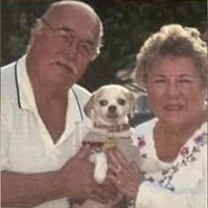Dog Eats $500, Treasury Check Comes Out
A man whose dog ate five $100 bills has been reimbursed by the U.S. Treasury.
Oct, 3, 2013 -- It's one thing when the dog eats your homework. It's something else when he starts wolfing down $100 bills.
That's exactly what Wayne Klinkel's golden retriever, Sundance, did, making a meal of five century notes. The saga of Klinkel, Sundance, and the money has a happy ending; but it took ten months' worth of intestinal twists and turns before this week, when the pet owner finally got a reimbursement check from the Department of the Treasury for $500.
Klinkel tells ABC News that Sundance has always been "a little weird on eating," with a particular taste for paper. That taste manifested itself last December when Klinkel and his wife stopped to enjoy a restaurant meal during a drive from their Helena, Mont., home to Denver, where they intended to visit their daughter and son-in-law.
They left Sundance in the car. They also had left, in a cubbyhole, five $100 bills and a single $1 bill. When they returned, the big bills were gone. The $1 bill, at which Sundance evidently had turned up his nose, remained.
Klinkel says he knew from picking up after the 12-year old dog that Sundance liked paper, and that paper passed intact through his digestive system. So, for the next few days Klinkel made it his business to inspect Sundance's business for paper fragments.
He retrieved some but not all. Pieces of some bills were missing.
In the spring, he heard from his daughter in Denver. Melting snow in her back yard had revealed the missing cache of fragments.
Klinkel meticulously soaked and cleaned and dried the complete set of pieces, then assembled them, putting each into its own plastic bag. He took them to his local bank, intending to exchange them for uneaten bills. The ladies at the teller window, though, said, "Ewwwww," when he explained how the bills had come to be damaged. He took them to a second bank, and was told to mail the bills to the Mutilated Currency Division of the U.S. Bureau of Engraving and Printing of the Department of the Treasury in Washington, D.C.
Which is what he did on April 15. Ten days later the Klinkels got a receipt back acknowledging the materials had been received. They heard nothing further until they got their check this past Monday.
Klinkel says he knew from having read the Bureau of Engraving's website that there was no guarantee he'd get anything. For mutilated currency to be considered eligible for redemption, more than 51 percent of the original must have been recovered. After that, according to the website, "each case is carefully examined by an experienced mutilated currency examiner." The time to process each request can take from six months to a year, depending on the condition of the currency. The director of the bureau has the final authority for the settlement of all claims.
Klinkel says that when the check arrived Monday he and his wife, worried about the prospect of a government shut-down, rushed to deposit it. "With the feds going under, we didn't want to waste any time. It came in the mail at 5 p.m. Monday, and by 9 a.m. the next morning it was in the bank," he tells ABC.
No explanatory note from the Bureau of Engraving accompanied the payment, he says, but the memo line of the check read "MUT.CURR REFUND."
DOG TEACHES DISABLED HOW TO SURF
Sundance's and the Klinkels' story has since gone viral. They have heard from news organizations all around the world. They were featured, Klinkel says, on this morning's front page of the biggest paper in Buenos Ares, Argentina.
And Sundance—what of him? Did he get some special treat or reward?
Sundance has had a history of ill health, including multiple surgeries for cancer, says Klinkel. "Still, he's loveable, mellow, laidback--pretty dependable." In July a growth was detected in one of his eyes, and the eye had to be removed. "About half of that $500 went to pay the vet."




